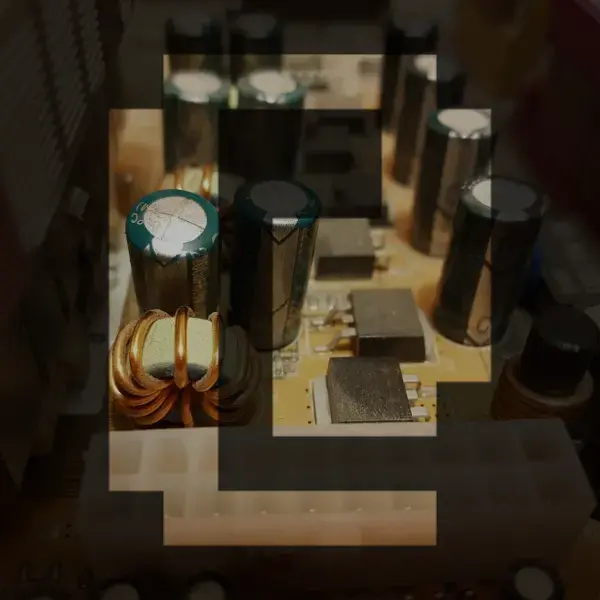Look, we know System76 laptops are based as fuck. I mean, Coreboot, Open source firmware, PopOS, and a fucking open source mobo in the works, just so fucking based.
But man, these framework laptops look cool too. Completely modular and easy to work on. Looks like the company has proved it isn’t going to go under anytime soon.
I’m debating what to get once I feel like upgrading from the trusty ol ThinkPad. What would you buy?
I think using a framework is a unique experience. I don’t worry about breaking it nearly as much as I did with my old thinkpads. Like my hardware key shorted itself and took my usb port with it. But, instead of it costing me a new laptop, it was 1 week, ~$10, and I was back in business.
Also, Linux support has been great so far. The only thing I had to do was install the brightness stuff they document.
I also heard they’re working on coreboot, so that may be a thing. Also the fact that the motherboard is released to all repair shops is quite nice (at least there is some potential for some type of community audit).
Also, the laptop is super slick. The only complaint I have is maybe the battery life, but I’m not on the newest generation, and I don’t know what has changed. Highly recommend.
You can get a higher capacity battery for them now that’s a drop in replacement.
I saw that. I get around 5-6 hrs right now (with napkin math - 61W/55W = 1.1 * 6 = 6.6hrs?) . To be honest I am not sure if the difference is worth it. It is incomparable to the massive capacity of something like an M1.
They already have the Framework Chromebook, which should ship with Coreboot.
I wish they had 10 inch option. Something like GPD Win Max 2, but without gaming features
There’s not enough thin 10 inch laptops on the market. I’d love to have a simple affordable one without 2010 bezels…
Framework: a cool mf swippy swapper. Oh, and here’s a Segway to our sponsor! Lttstore.com!
I’d say intro plays, however they removed it
I believe frameworks firmware is open source as well. If money was no object I’d go framework. Modularity and reparability are unmatched. I love that I can just take the camera and microphone physically out of the laptop with ease. I really wanted to get the 16 but its just simply out of my budget. Hoping the price will come down over the next few years.
@topRamen
@MashingBundle
At the very least you’ll probably be able to get a refurbished one later for cheaper
I don’t get the hype of paying a premium for these laptops over just doing the research required to make sure you get one that will work fine with Linux instead, for much less.
A modularized laptop is cool but how often are you really going to want to mess with a laptop once it’s working anyway?
I pre-ordered the 13" AMD, and here’s my 2 cents: In 2013 I bought a MacBook Air. The i7 version was pretty decent for dev, and it had all the other ultrabook niceties (small, light, all day battery, etc). I was still happily using it in 2020, though it was starting to show it’s age. In 2023, Apple still makes MacBook Airs in the same form factor. They look almost identical. Several thousand days of active use mine is practically still in mint condition too. If I could pay 2/3rds the price of a new one to upgrade the internals+screen I would totally have done that! I don’t expect to change out the modular IO much, but it is nice that I have the option to get an SD card reader or to choose the port layout to match my desk. I’ve also got what I need to make a magnetic charging adapter for it, so that’s awfully nice. So is it worth the extra cost? Maybe not, but I’m an idealist sometimes, and I like their ideals.
I feel like these both lack really good high res displays. Why? It’s be awesome if it had something comparable to a MacBook Pro resolution.
TBH, that’s not a factor for me. I use an HMD for everything these days so, it’s likely favorable to have a lower res to save power.
I’m holding out for some company to do an OLED one, or at least for an OLED mod to be available
The Framework is 2256x1504 in a 3:2 13.5" display and Macbook Pro 13" is 2560 x 1600 16:10. The Mac wins as they should with Apple’s massive vertical integration and profit margins but I would argue those numbers are comparable when a lot of laptops are still shipping with 1920x1080 16:9 displays.
The Framework 16" is going to be a 165Hz 2560x1600 16:10 which is well behind the Macbook Pro 16" but they are addressing very different markets. Many Linux and possibly still some Windows users are skeptical about the battery use, performance and os/app scaling of very high res displays while Apple addressed those issues a long time ago. I considered scaling a negative over using native resolution when looking at the Framework 13. It turned out not to be a problem.
Framework is a sustainable/repairable device for Windows/Linux/BSD/ChromeOS and they only really need to compete with what is available to those users. Their Chromebook is way ahead of the Chromebook market. They can’t compete against Apple because Apple doesn’t licence their OS or processors to other manufacturers so it is a pointless comparison.
Thanks for the info. I wasn’t quite aware of the 13” and it’s resolution. That is quite comparable I agree.
not that it helps, but i think i heard framework is keen for 3rd party components? so there’s nothing stopping someone selling a 3rd party high res display for a framework laptop
hell i’ve seen people tear up old laptops and repurpose the screen: i wonder if you could part out an old macbook and replace a framework screen! :p
As a System76 laptop owner, don’t buy them. Their product is just… bad.
I can agree with this, my Darter has horrendous battery life and had a ton of bugs that made the thing really annoying to use until a recent BIOS update. I can’t help but feel like I got burned.
Next laptop is a Framework for sure.
The same. I currently still uses my Galago Pro(galp5), but right now I have to plug the power at all times and also switched distro to Fedora which surprisingly supports this laptop better than their own Pop!_OS
I can second this. I’ve had two bricked System 76 systems because the DC jack burned itself right off the board.
As someone who has been plagued by broken, hard to repair laptops before, I went for the Framework Laptop. Of course, your needs and wants might be different.
System 76 laptops are probably a bit better for Linux considering they were built specifically for it. They also have more variety in what kind of laptop you can get, whereas the Framework only comes in a 13 inch “ultrabook” form factor and a future 16 inch gaming laptop. And battery life I believe is a bit better than the Framework.
However, Framework still works really well with Linux (I use Linux Mint on mine, and it works great.) And the flexibility in being able to repair, upgrade and customize your laptop is really nice. Plus, the battery thing is slowly but surely getting fixed, and while it’s still not entirely great, it has gotten me through the day as a computer science student.
I didn’t know they were planning a gaming laptop. That would be nice because I do some gaming but bot enough to want to buy a whole new rig every couple of years. Having a modular means to upgrade it would hopefully make it more affordable.
System 76 laptops are probably a bit better for Linux considering they were built specifically for it. TL;DR: Research the model of computer you’re looking to buy with the distro you want before making the purchase no matter who you’re buying from.
I have a bit of a chip on my shoulder about this. In 2018 I bought an Oryx Pro specifically because of this and because at the time JB was advertising them as “machines born to run Linux”. However, this was not the case. The machine would constantly fail to resume from sleep and when it did, the wired network adapter would sometimes stop working until you rebooted the machine. This was on Pop!OS. The wired network adapter issue did not occur on Debian Testing at the time, but at this point I was just doing all the same workarounds on a System76 machine that I would have to do on any other machine, which completely defeated the point of buying a machine “born to run Linux”. I ended up returning the machine despite this meaning that I would lose $1000 AUD in shipping (roughly $500 AUD each way). System76 did refund the cost of the machine as promised though and I appreciated the honesty and professionalism from their support. I believe the network issue was due to a regression in the kernel which had not yet trickled all the way down. To be fair, maybe System76 have ironed these issues out on their new machines.
Don’t buy a machine from a manufacturer because they specifically sell Linux laptops hoping that it means you won’t run in to any issues. Do some research on the model you’re looking to buy for any issues with the distro you want to run and make your decision from there. The Ubuntu computer certifications are really useful here. I believe Ubuntu tested the ThinkPad P52 I bought afterwards and said everything but the fingerprint sensor worked, but to NEVER turn on one of the BIOS options because I would brick the machine, so I knew this before buying the ThinkPad and could make an informed decision.
The one advantage you might get with a Linux manufacturer is that they might be able to help if there is an issue, where-as you might have to hide the fact you run Linux from other manufacturers.
Framework selects components that work well with Linux. They’re acutely aware how many Linux users they’ve got from the activity in their forum. We’re very loud.
My Framework Laptop experience was really poor. Battery life was impossibly bad, Linux support was not as stellar as promised, the thing had the loudest fan I’ve ever heard, & my entire mainboard died & it took support 2 weeks to diagnose the issue. I’d go System76. I went with a Mac for Apple Silicon, & I’m going to try Asahi Linux soon
I have a Framework and it’s been an amazing device! As a company, they have definitly followed through with their promises too and I’ve been very satisfied with them. I’ve heard that System76 devices are fine too, and they have nice stuff like coreboot and lvfs, which Framework lacks right now, but they aren’t nearly as unique as Frameworks, and in my view, are a bit generic. I would definetly reccomend the Framework! Just note that you may have to wait a while to get one, so if you need a new laptop asap (which it sounds like you don’t), you may have to look elsewhere. If you can wait though, definitly get a Framework!
sadly both of them don’t ship or even sell in Indonesia… sad sad life
I’ve only owned a System76 laptop and they are alright. Framework would be my next choice for sure.
Does anyone know how much the ability to upgrade a Framework machine in the future depends on the company?
Are third parties free to manufacture compatible parts?
AFAIK they are, but it will only happen if Framework sells enough units for it to be profitable to a 3rd party to manufacture parts.
So if Framework disappears tomorrow, I wouldn’t bet on 3rd party to jump on that niche market. That might change of Framework ships millions of units over the next years.
I believe 3rd party is free to manufacture any of the expansion ports (including the gpu/back expansion port)
I just dont recall if all the mainboard stuff is open, but theoretically a 3rd party could make their own mainboard, theres just no financial incentive to compete against framework doong that as of the moment.
There are third parties (mostly people with 3d printers) selling enclosures to turn an old laptop mail board from framework into a mini desktop.
I think most of their stuff is open source. So the main thing is the barrier to entry to design things like modules etc for the laptop.
I don’t think you can go wrong with either. But I love that I can swap my ports around on my framework laptop. Especially after my display port got broken last year (cable got snagged). Instead of it being damaged until I replaced the laptop, I ordered a new module for $20.
Eta: I’d love to see a partnership between them in the future.
If money was no object I would go all in on open source hardware. Open source everything for me. Sadly I cannot. And so I am still stuck with decades old closed source hardware. But at least I’m running Linux on it.
I’m using Dell laptop, they are still supported even the 6 or 7 years old one, with new bios fixing CVE, etc and some of them were even sold with Linux at the time!
I bought a E5470 (core I5 6th gen) I love it, less than 200$, 8GB of ram, 14" 1080p IPS, 256GB SSD. Full repair manual available, etc.
I’m running MX Linux on it
The ubuntu versions are often cheaper!
However, they’re very bloated
MX Linux is great. Even voor systems specced lower than that. I bet that runs like a dream flr you.
I think it’s nice how Dell still supports these. I’ve always been fond of the Latitude laptops with their ruggedness.
Yes, with Xfce it’s pretty snappy, works really well. The E5490 is even better especially with a i7
@MashingBundle #TUXEDOComputers is what I advise for linux focused laptops.
Can’t agree. 4 out of 6 tuxedos (different timings, different models) had to be repaired - some even multiple times. And still they remain buggy for me especially with usb-c docking stations. And no LVFS.
@binarious WOW, 4/6 sounds like some higher than average odds, that really sucks. I hope you at least gotten it all resolved, money back, or found what works for you. I had a battery swell up on me a couple years in but that’s quite common and expected in my work environment. Extremely easy fix as well as they used a common, easy to source battery.
I’ve not tried a huge sampling of different ones (3~4), but I’ve yet to run across a USB-C dock that didn’t work for me under gentoo.
The LVFS thing doesn’t really bother me as much as the still delayed coreboot/libreboot they’re working on. Most people couldn’t care less about either of those things, and they’re not a show-stopper for me, so it still remains at the top of my very light recommendations list.
Thank you. RMA procedure is still in progress, but their support is nice and I’m hopeful to get it sorted.
Interesting. I’ve tried around 5 docks from which only 1 worked correctly. Mostly issues with 4K at 60hz. Other notebooks worked well with the ones the tuxedos struggled.
I agree, the manual EC/BIOS updates aren’t very nice, but not a show-stopper. Coreboot has been promised for quite some time now and they’re still searching a coreboot dev. Maybe this will be a thing someday, but I don’t think we’ll see that soon reading their responses regarding this on reddit.

















